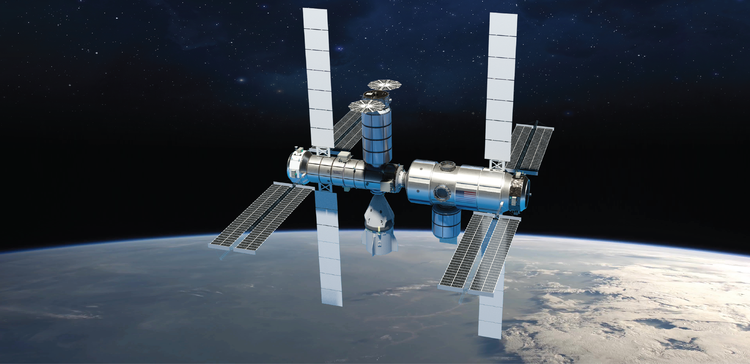A new report centers on the possibility of Northrop Grumman dropping out of the bid to create NASA's first commercially commissioned space station that is set to replace and succeed the International Space Station. In its early conception, NASA named four companies to join this project, with the likes of Axiom Space, Blue Origin, Nanoracks, and Northrop Grumman as part of the run.
The International Space Station is at odds and ends, with it already extending beyond its expected life in the Earth's orbit to house the world's space personnel.
Northrop Grumman's Space Station No More?

Ars Technica reported that several sources pointed out that Northrop Grumman is allegedly dropping out of their bid to create a space station for NASA to succeed the famed ISS. This new buzz was picked up in the International Astronautical Congress that is held in Azerbaijan this week, speculating against Northrop's work on the station.
Moreover, it was said that Northrop Grumman is not entirely backing out, rather, it would drop its self-made plans and join Voyager Space along with Airbus to develop the said commercial space station.
Blue Origin and Sierra Space were reported that their partnership was "on rocky footing," according to CNBC, and this adds another dropout from the list.
Read Also : NASA Partners With SpaceX, Blue Origin, and 5 Other US Companies to Advance Space Capabilities
Private Space Companies for Space Station
Private companies are being commissioned for the new space station, with Northrop Grumman's original plan centering on the designs of its Cygnus rocket, focusing on its commercial spacecraft experience.
In the run, there is still Axiom Space and Nanoracks, both American companies who are still mum on these latest developments for NASA's commercial space station.
International Space Station Successor
While the International Space Station is nearing its end of life, NASA and the world are already turning to private space companies to create the next orbiting neutral grounds to replace it. Earlier reports claimed that the ISS would crash into the Pacific Ocean as part of its decommissioning in 2031, and by this time, there would already be a replacement to continue more space studies in a better environment.
The ISS is already 25 years old, and its first module, the Zarya, was first launched in November 1998 aboard a Russian rocket to kickstart their plans.
Two years ago, NASA began naming successors and companies who have bids in creating the next space station for the world, with Blue Origin and Sierra Space co-developing the "Orbital Reef," and NASA pledges support to it.
SpaceX also leveraged its Starship as the next LEO space station but was not part of this program.
The latest reports are already going ahead of official announcements and speculating on Northrop Grumman dropping out of the bid, but still leaves three companies on the run for the future of space studies.
Related Article : SpaceX's Starship to be the Next Space Station, LEO Destination with Support from NASA

ⓒ 2025 TECHTIMES.com All rights reserved. Do not reproduce without permission.




